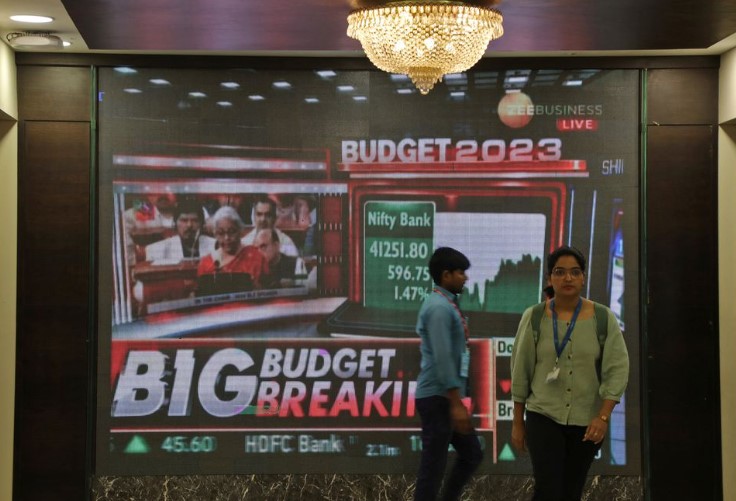NEW DELHI, Feb 2 (Reuters) – India’s government on Wednesday unveiled a $550 billion budget for the next fiscal year that starts on April 1, with a plan for record capital spending while reining in the fiscal deficit.
Prime Minister Narendra Modi’s party, which faces elections in key states this year and a national vote in 2024, has been under pressure to create jobs in the country of 1.4 billion where many have struggled to gain employment and a decent wage.
Below are some key figures in graphics from the budget presented by Finance Minister Nirmala Sitharaman.
WHERE WILL THE MONEY COME FROM TO FUND SPENDING?
The government is targeting revenue receipts growth of 12% to 26.32 trillion rupees.
MARKET BORROWING
Gross market borrowing is estimated at 15.43 trillion rupees ($189 billion), while net borrowing is seen at 11.81 trillion rupees.
The net borrowing excludes 781 billion rupees of bonds given to states on account of compensation for a shortfall in goods and services tax, reducing the repayments due next year.
New Delhi also aims to switch bonds worth 1 trillion rupees next year, after switching bonds worth 1.03 trillion rupees this year.
DIVESTMENT RECEIPTS
The government expects to raise 510 billion rupees from stake sales in various state-run companies.

SPENDING SURGES
The government raised its spending target by 7.5% to 45.03 trillion rupees for 2023/24.

CAPITAL EXPENDITURE
The government will spend 10 trillion rupees on longer-term capital expenditure in 2023/24, extending a strategy adopted to revive growth in the aftermath of the COVID-19 pandemic.
The allocation is higher than the 7.5 trillion rupees budgeted for the current year. The year-on-year increase of 33% follows last year’s 35% jump.

MAJOR SUBSIDIES
The government cut major subsidies by 28% to 3.75 trillion rupees for the next fiscal year.

FISCAL DEFICIT
The government will target a budget deficit of 5.9% of GDP for 2023/24, down from this year’s 6.4%. A Reuters poll had pegged the budget gap at 6% of GDP.

($1 = 81.8150 Indian rupees)







